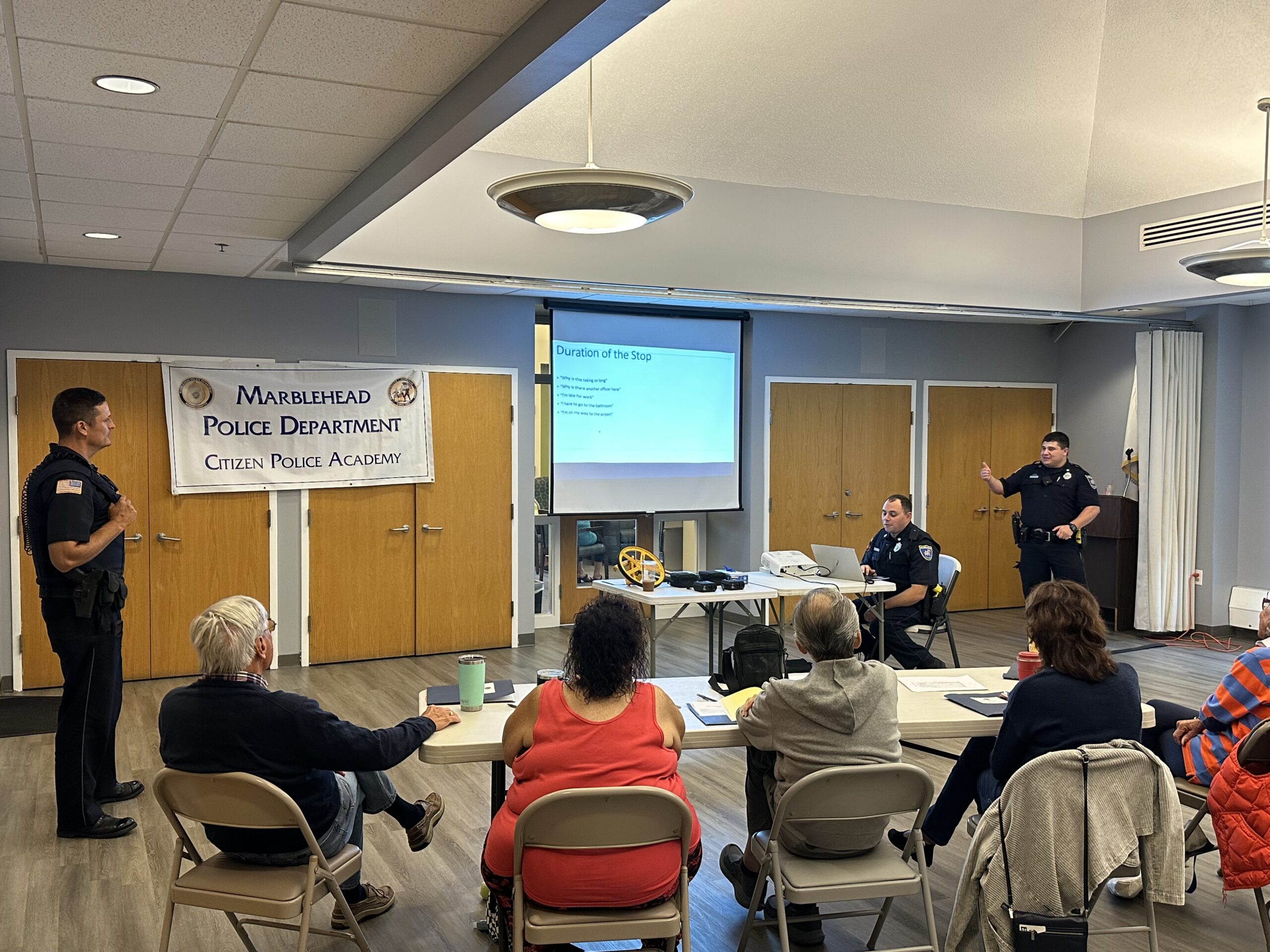The Police Department graduated its most recent group of “recruits” from its Citizen Police Academy this past week.
The CPA is a free nine-week course held at the Council on Aging that takes an in-depth look at the town’s police work on both general and day-to-day levels. The eighth group of students in the program’s history consisted of nearly 20 residents who committed to a three-hour session every Friday before being awarded their graduation certificates.
The academy’s staff consists of ten members of the department, including Lt. David Ostrovitz, who has coordinated the program along with COA Program Director Janice Salisbury-Beal since it began in 2018. Ostrovitz explained that a primary motivation of his is to give civilians an opportunity to see what his profession is all about, beyond how police are portrayed in media and pop culture.
“The police profession has always been one of the most captivating professions out there,” Ostrovitz said. “With that comes a lot of misconceptions and preconceived notions and things that aren’t really reality… Our goal is for people to understand everything about our job.”
The program aims to be as thorough as possible by detailing everything from the process of becoming a police officer to handling the most dangerous situations. Some of its educational highlights include an extensive tour of the police station, a demonstration from the canine unit, and a guest presentation from the Essex County Sheriff’s Department.
However, Ostrovitz suggested that the most important lesson may take place at Essex County Superior Court.
“We actually take people on a tour of the courthouse, and they meet with judges,” Ostrovitz said. “Things don’t just start and stop in Marblehead, they go onto the courthouse, where things are adjudicated and an alternative situation is resolved that way.”
One featured guest provides a resource that puts the students at the center of realistic police scenarios. Retired Swampscott officer John Dube utilizes his Mill training software to teach how officers are trained to react in numerous situations.
“He has thousands of scenarios that he can manipulate,” Ostrovitz said. “These are ‘shoot-don’t shoot’ scenarios, and we use the same exact thing for our own training to supplement our own firearms training. It really gives a very real feel on what it’s like to have to make a split-second decision.”
Lisa Palmer and Anne Tassel both graduated from the academy in fall 2022. Palmer fondly remembered how open and approachable the instructing officers were, while Tassel explained that a lesson she learned interacting with emergency dispatchers is what has stuck with her the most.
“One of the dispatchers said, ‘One of the biggest complaints we get is we’re cranky when you call,’” Tassel said. “They gave an example of a particular day where they had two people answering calls. One was speaking to a woman whose husband had just had a heart attack and the other was speaking to a young mother whose child was not breathing. But then a person called because her neighbor’s wind chimes were too loud… That to me is a perfect example of ‘You don’t think about it that way.’”
She encouraged everyone to take the class.
Ostrovitz is looking forward to the next course being offered in the near future. Due to popularity and positive feedback, he and his fellow organizers are also looking into a potential “2.0” class for those who have graduated from the original program.

